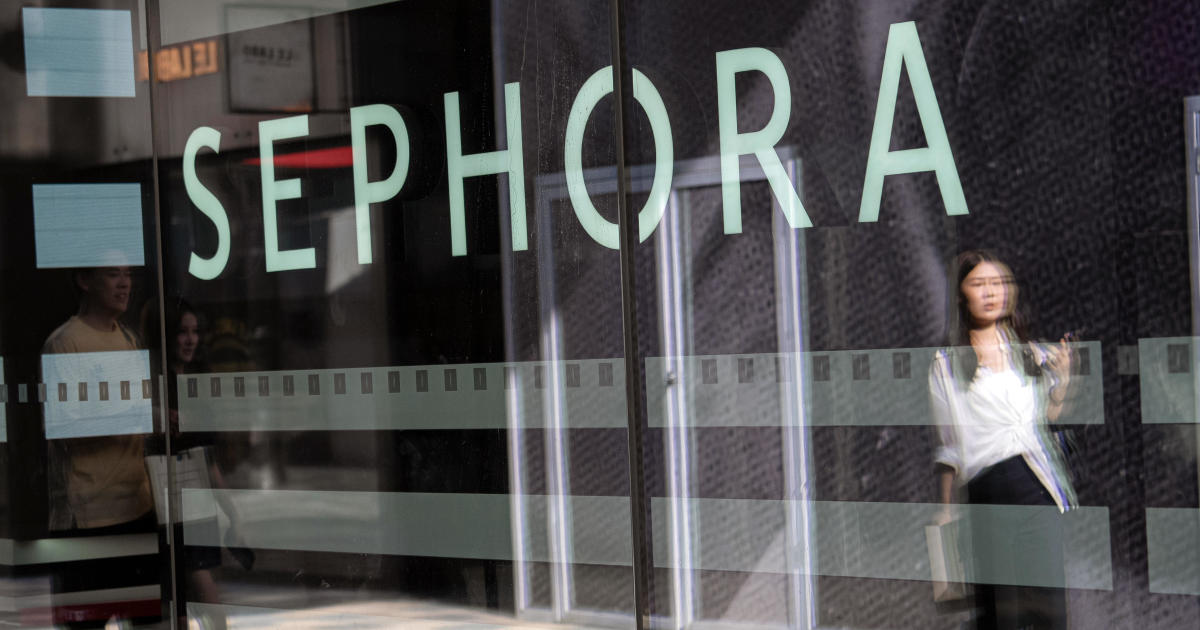Beauty retailer Sephora has found itself at the center of controversy after viral social media posts alleged that the company made large donations to President-elect Donald Trump’s campaign. The posts quickly gained traction, leading to calls for a boycott of Sephora and other popular retail outlets. However, Sephora has vehemently denied these claims, stating that it does not make corporate donations to political candidates.
In a statement to CBS News, a Sephora spokesman addressed the misinformation circulating on social media, clarifying that the company’s mission is to create a welcoming beauty shopping experience for all customers. The spokesman emphasized that Sephora does not use corporate funds to support political candidates and expressed regret over the spread of inaccurate information that has led to calls for a boycott.
The controversy surrounding Sephora highlights the power of social media in shaping public opinion and driving consumer behavior. A TikTok video with over 11 million views played a significant role in spreading the false information about Sephora’s alleged donations to Trump’s campaign. The video urged viewers to boycott Sephora and other retailers implicated in the supposed donations, setting off a wave of backlash against the beauty retailer.
Despite Sephora’s clear denial of the allegations, the fallout from the viral social media posts has raised questions about the influence of corporate donations on consumer perception. The Federal Election Campaign Act prohibits corporations from making direct contributions to candidates in federal elections using general funds. However, companies can set up political action committees (PACs) funded by voluntary employee contributions or make unlimited contributions to Super PACs that indirectly support candidates through advertising and advocacy.
Campaign finance watchdog groups like Open Secrets monitor and track donations made by corporations and individuals to political candidates. They provide transparency by making information about donations over $200 publicly available, allowing for accountability in the political donation process. Brendan Glavin, Deputy Research Director of Open Secrets, explained that when consumers see boycott lists targeting companies, they may be looking at aggregated donations made by employees of the organization rather than direct corporate contributions.
In the case of Sephora, campaign finance records indicate that individuals associated with the company’s parent company, LVMH, donated $318 to Trump’s campaign during the 2024 election cycle. However, they contributed over $35,000 to Kamala Harris’ campaign, highlighting a disparity in political donations. Foreign nationals are prohibited from contributing to federal elections, and only U.S. citizens or permanent legal residents employed by LVMH can legally donate to political campaigns.
Furthermore, analysis from Open Secrets revealed that LVMH did not contribute to any campaigns through PACs in 2024. Foreign-based companies with U.S. subsidiaries have the option to form PACs funded by American employees or make direct contributions to Super PACs as long as no foreign nationals influence the contributions. Sephora’s former chief executive, Jean-Andre Rougeot, exclusively donated to Democratic campaigns, while the current CEO, who assumed the position in April 2024, has not made any political donations.
The controversy surrounding Sephora’s alleged donations to Trump’s campaign also engulfed other companies like Kohl’s and Home Depot, both of which denied making contributions to the President-elect. A spokesman for Kohl’s reiterated the company’s commitment to neutrality in political matters, emphasizing that Kohl’s does not engage in corporate donations to political candidates. Similarly, Home Depot refuted the claims circulating on social media, stating that the company does not support any political candidates through corporate funds.
The backlash against Sephora and other companies underscores the importance of transparency and accountability in corporate donations to political campaigns. As consumers become increasingly aware of the impact of their purchasing decisions on companies’ political affiliations, businesses must navigate the delicate balance between political engagement and maintaining customer trust. Sephora’s swift response to the boycott calls and its clear denial of the allegations demonstrate the company’s commitment to maintaining a neutral stance in the political arena.
In conclusion, the controversy surrounding Sephora’s alleged donations to President-elect Donald Trump’s campaign sheds light on the complexities of corporate political contributions and the power of social media in shaping public perception. As companies like Sephora face scrutiny over their political affiliations, transparency and accountability in campaign finance become crucial factors in maintaining consumer trust. The episode serves as a cautionary tale for businesses navigating the intersection of politics and consumer behavior in an increasingly polarized society.









